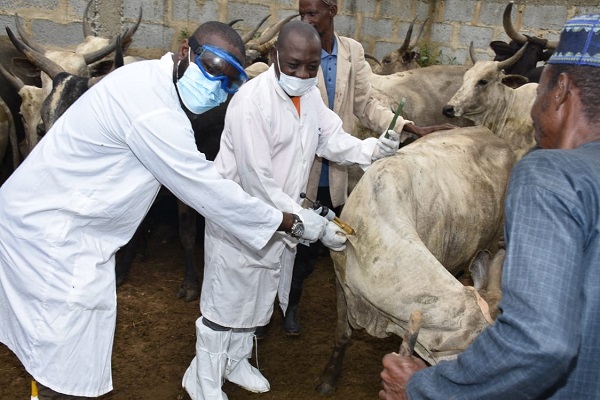
In a significant step toward addressing the rising threat of antimicrobial resistance (AMR), seven youth-led organisations across Africa and South Asia have secured over £50,000 in funding to implement animal health campaigns focused on responsible antibiotic use.
The announcement was made by The Trinity Challenge on Monday in Abuja.
According to Science Nigeria, the winners of the Youth Funding Competition were selected from a highly competitive pool of over 80 applicants spanning 35 countries, including regions in Latin America, the Middle East and Asia. The competition prioritized sustainable, youth-driven solutions aimed at reducing antibiotic use in animals by promoting biosecurity measures such as improved hygiene, better nutrition and vaccination.
Among the selected projects are initiatives based in Kenya, Nigeria, Zambia, South Africa, Tanzania and India, each proposing grassroots approaches to limit antibiotic misuse in agriculture, a key driver of drug-resistant infections.
Executive chair and founder of The Trinity Challenge, Dame Sally Davies said, “We are thrilled to support these youth-led animal health campaigns and witness the impact they will have, not only in their communities but in the global response to the antibiotic emergency.”
She highlighted that the winning projects bring diverse, innovative and community-rooted solutions to the table. In Kenya, the Goats Offering AMR/AMU Teaching (G.O.A.T.) project targets mastitis control through improved farm practices. In Tanzania, the “Healthy Farming, No AMR” initiative led by One Health Society focuses on preventive measures and awareness campaigns for livestock antibiotic use.
In Zambia, the “Hygiene for Our Flock” project is working to improve animal husbandry practices to reduce the reliance on antibiotics. Meanwhile, “Level Up Biosecurity, Lock Out AMR” is a multi-country initiative covering Nigeria, Uganda and Kenya. Led by Vet Konect, it uses digital tools and targeted farmer training to increase biosecurity awareness and adoption.
South Africa’s campaign, “Protecting Cultural Livelihoods,” implemented by Eh! Woza, combines AMR awareness with storytelling and cultural practices, while India’s “From Campus to Farm,” developed in partnership with ReAct Asia-Pacific, mobilises university students to spread knowledge on antimicrobial stewardship from academic institutions to rural farming communities.
These projects officially launched on May 20 and will receive both financial backing and tailored technical coaching from leading public health experts to support implementation and long-term impact.
Davies described AMR as a “silent pandemic,” noting that its rise poses a severe global threat, making previously treatable infections harder – or even impossible – to cure. She stressed that the overuse and misuse of antibiotics in both human and animal health have driven the emergence of resistant microbes.
“In many low- and middle-income countries, antibiotics are often used to compensate for poor hygiene and overcrowded livestock conditions. This increases the risk of resistant bacteria transferring to humans, either through food or environmental contact,” she said.
She emphasised that empowering young people to take local ownership of AMR solutions is vital to fostering lasting behavioural change and building stronger, more resilient health systems.
“There is a vital role for the insight and leadership of youth in shaping meaningful change. These campaigns will elevate awareness, galvanize communities, and drive tangible progress,” Davies added.
The initiative is supported by the Ineos Oxford Institute for Antimicrobial Research and underscores a growing international commitment to tackle AMR through innovation, education and cross-sector collaboration.
The Trinity Challenge launched its first youth competition in 2023, focusing on scalable, data-driven health innovations aimed at preventing future pandemics and improving global health resilience.

